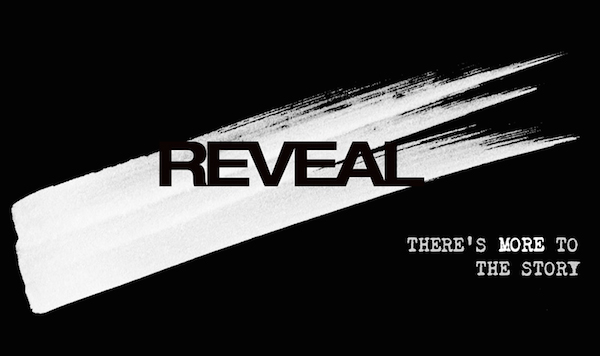
It’s a rare feat for the first episode of a brand new show to win a Peabody. And yet that’s what happened with Reveal, the still new public radio show from the Center for Investigative Reporting.
Over the past year, CIR has co-produced three pilot episodes of the series with PRX, focusing on new investigations into subjects like poor drinking water standards and the pathway for heroin from Juarez to Chicago. Along with the Peabody, those proofs of concept were enough to win support for the show from NPR stations and help secure $3.5 million in grants to help produce the show for several years.
The money, a combination of $3 million from the Reva and David Logan Foundation, and $500,000 from the Ford Foundation, will go towards staffing up and taking Reveal to a full series launching in January 2015. The goal, according to CIR executive director Robert Rosenthal, is for Reveal to become a weekly investigative show, available on public radio or as a podcast. “Each of the pilots showed there is an appetite in public media for this,” Rosenthal said.
But turning Reveal into the public radio version of Frontline could be a challenge. Any reporter or editor will tell you that investigative stories take time. Producing such a show weekly is ambitious, and Rosenthal said they recognize they won’t be able to meet a weekly pace overnight. “We’ve got to ramp up our own metabolism,” he said. “If it’s weekly or every other week, it’s going to be a change for us. And important change and a good one that helps us get control of our own distribution.”
Ever since its founding in 1977, the Center for Investigative Reporting has looked for partners to help spread its journalism to the widest possible audience, often appearing in print, on TV or radio, and across the web. Reveal was no different; in the second episode, CIR collaborated with WBEZ and the Chicago Reader on the heroin investigation. For a story on arsenic-laden drinking water in the third episode, they partnered with the Center for Public Integrity.
Working in tandem with other newsrooms will be an important step in producing the show on a regular basis. Joaquin Alvarado, CEO of CIR, said the pilots were designed to see how collaborative reporting would work in producing a radio show. The show is produced by Susanne Reber and Ben Adair, and hosted by Al Letson, who also hosts the show State of the Re:Union. Where the first pilot only featured reporting from CIR, the subsequent shows were produced with stories from other outlets. A combination of both will be key to producing the show consistently, Alvarado said.
“We have this goal as an organization to articulate a voice for investigative reporting and bring to audiences a lot of the great investigative reporting being done around the country,” Alvarado said.
Jim Morris, managing editor for environment coverage at the Center for Public Integrity, said their distribution strategy mirrors CIR’s in that both look regularly for collaborators. “It just gets our work out there to a much broader audience, and a different audience,” he said.
In this case, reporter David Heath had already done preliminary work on his story looking at the EPA’s response to arsenic levels in drinking water when the two organizations decided to team up. While CPI has worked on stories with NPR and individual stations before, Morris said this process was different because Heath was the lead correspondent for radio. That meant learning a new set of skills in addition to the usual reporting process, which Morris said took around three months. “It’s a different thing to produce a 15-minute radio piece than a 4,000-word print piece,” Morris said.
A full-fledged radio show will provide CIR and its partners a more persistent channel for their work than one-off radio pieces. But getting the show on the air will require not just interest from stations, but flexibility in their programming schedule. The first two Reveal pilots aired on 150 stations nationwide, according to Alvarado.
John Barth, managing director of PRX, said the pilots aired on stations in the top 30 to 50 radio markets, which he takes as a good sign for the future. PRX co-produces Reveal, bringing its audio expertise, but also is the show’s distributor, helping to get it on the air. One reason Barth thinks the show will get picked up by more stations is because programmers want a full series they can give a regular home on their schedule, not a handful of one-offs with no promise for the future.
PRX and CIR are interested in programs that can match radio storytelling with longform investigations, Barth said, and he thinks stations are interested too. “I think we both recognize there was a need for more regular investigative reporting in public media,” he said.
Barth, who was a founding producer on Marketplace, said launching a new public media show takes time — to find distribution, to build an audience, and to develop into the show you want. “The challenge is broad,” Barth said. “Making sure you can amass talent on a regular basis to deliver this…investigative reporting doesn’t happen on any kind of regular schedule.”
Of course, the other challenge will be financial. While the new grant funding will be important in launching the show, Alvarado said they’ll be looking at underwriting, events, and other fundraising to support the show on a long-term basis. Alvarado is optimistic about the prospects for funding and building community around the show. “When you start to engage around harder reporting, people really want to talk about solutions,” he said. “They want to have a regular platform to followup and talk about it.”